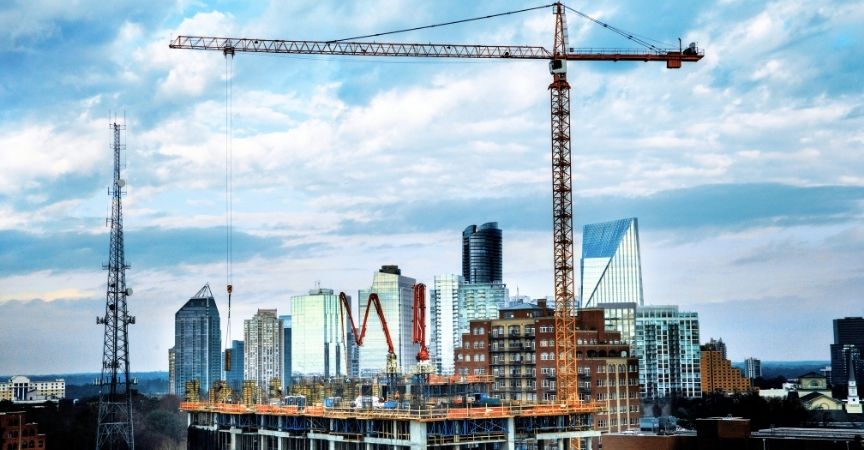Construction projects in Georgia, particularly those involving commercial real estate, high-rise, condominium, and mixed-use developments, involve multiple stakeholders, complex contracts, and significant financial investments. Even with careful planning, disputes can arise that threaten timelines, increase costs, and strain relationships between owners, developers, and contractors.
This post examines the key factors that often lead to construction disputes in Georgia and explains how to address issues promptly, safeguard your interests, and prevent costly litigation. It also provides insight into common causes of disputes and offers practical guidance to help keep projects on schedule, manage risks, and protect relationships between owners, developers, and contractors.
Common Triggers for Construction Disputes in Commercial Projects
Commercial construction projects, whether high-rise, condominium, or mixed-use, are high-stakes undertakings where precision and coordination are critical. With so many parties involved and large financial commitments on the line, disputes often stem less from isolated incidents and more from recurring pressure points within the construction process. These problem areas, if not managed proactively, can quickly derail schedules, drive up costs, and increase the likelihood of litigation.
Disputes often emerge from:
- Contract Ambiguities: Vague or conflicting terms can lead to differing interpretations and disagreements.
- Scope Creep: Unclear project scopes can result in unauthorized work and disputes over responsibilities.
- Delays: Unforeseen delays can affect project timelines and financial outcomes.
- Quality of Work: Subpar workmanship can lead to defects and subsequent legal claims.
- Payment Issues: Disputes over payments, including mechanic’s liens and prompt pay claims, can arise.
Addressing these issues early through clear contracts, consistent documentation, and effective communication is key to preventing escalation into formal litigation and keeping projects on track.
Construction Defects and Contract Disputes in Georgia
Defective construction and contract disputes are prevalent in commercial projects and can significantly disrupt timelines and budgets. These disputes often involve large-scale developments such as high-rises, mixed-use properties, and resort projects, where multiple contractors and stakeholders are involved.
Additionally, disputes often arise from:
- Breach of Contract: Failure to fulfill contractual obligations can lead to legal action.
- Warranty Claims: Disagreements over warranty coverage and responsibilities.
- Indemnity Issues: Conflicts over indemnification clauses and responsibilities.
In Georgia, there is also a specific statute called the Right to Repair Act, which creates a pre-litigation process for certain types of construction defect claims. The Act applies primarily to residential properties, including single-family homes, townhomes, and condominiums. For condominium or HOA associations, the law may come into play when the association pursues claims related to individual units or common areas. However, it does not extend to purely commercial projects, hotels, or mixed-use developments that are not primarily residential.
Engaging experienced legal counsel can help navigate these complex issues and protect your interests.
Mechanic’s Liens, Change Orders, and Delay Claims
Mechanic’s liens are an important tool for contractors and subcontractors to secure payment in commercial construction projects. Improper filing or failure to comply with statutory requirements can invalidate a lien, creating additional legal and financial complications. Similarly, construction disputes over change orders or project delays can significantly impact cash flow and project timelines. Proactive management, proper documentation, and legal oversight are critical to resolving these issues and preventing them from escalating into litigation.
Why Experienced Atlanta Construction Litigation Attorneys Are Essential
Experienced construction litigation attorneys provide critical guidance to protect clients’ interests and ensure projects move forward efficiently. Skilled attorneys handle dispute resolution through negotiation, mediation, and arbitration, and represent clients in court when necessary. They identify potential risks early, offer strategic solutions, and advocate effectively on behalf of developers, property owners, and contractors. Working with attorneys who understand the nuances of Atlanta construction law can make a significant difference in achieving favorable outcomes in complex commercial construction disputes.
Preventing and Resolving Commercial Construction Disputes
Minimizing the risk of disputes begins with clear contracts, open communication, and early engagement of legal counsel. Comprehensive agreements that define roles, responsibilities, and project expectations can reduce ambiguity and prevent conflicts. Regular updates and proactive problem-solving help keep projects on track, while experienced attorneys can provide guidance for handling change orders, delays, or defects. By implementing these measures, stakeholders can address issues before they escalate, protect financial interests, and maintain project momentum.
Contact an Experienced Georgia Construction Litigation Attorney
Construction disputes in commercial projects can be complex and far-reaching. If you are involved in a disagreement over a high-rise, condominium, or mixed-use development, whether it’s commercial or residential, it is crucial to seek professional legal representation immediately.
As one of the leading construction law firms in Atlanta, Winter Capriola Zenner combines decades of experience with a commitment to integrity, client-focused solutions, and strategic advocacy. Our attorneys are dedicated to protecting our clients’ investments while fostering strong partnerships with all stakeholders.
Contact Winter Capriola Zenner today to speak with an experienced Georgia construction litigation attorney and learn how we can support your project, safeguard your interests, and help you achieve successful outcomes.
